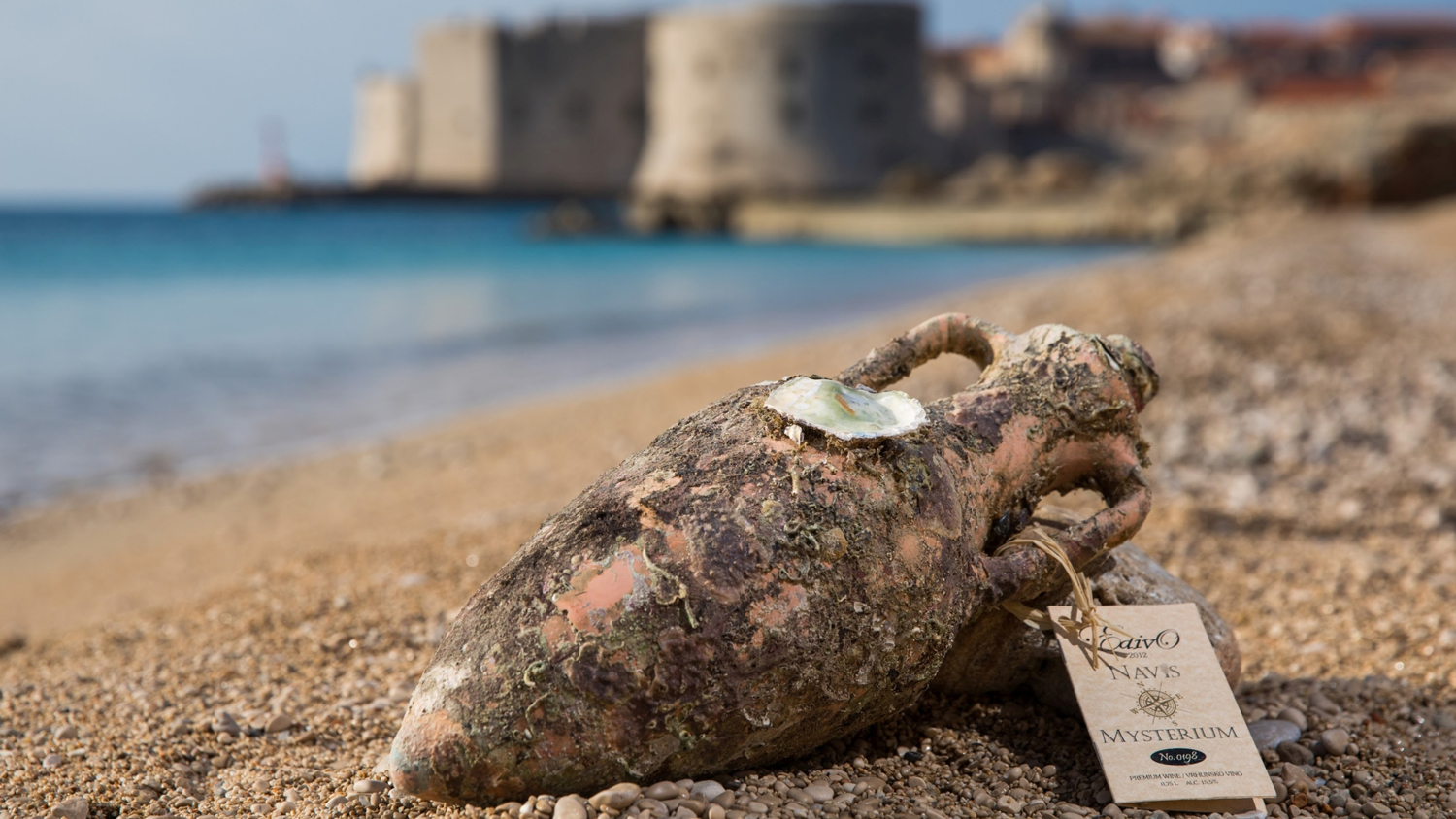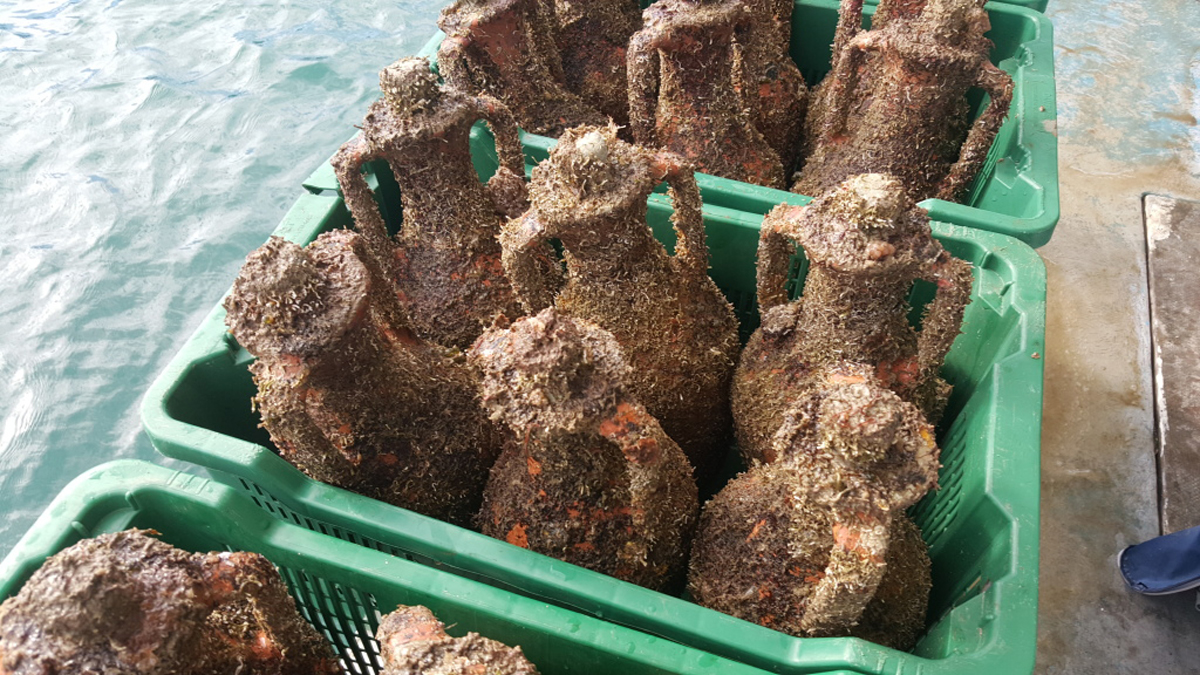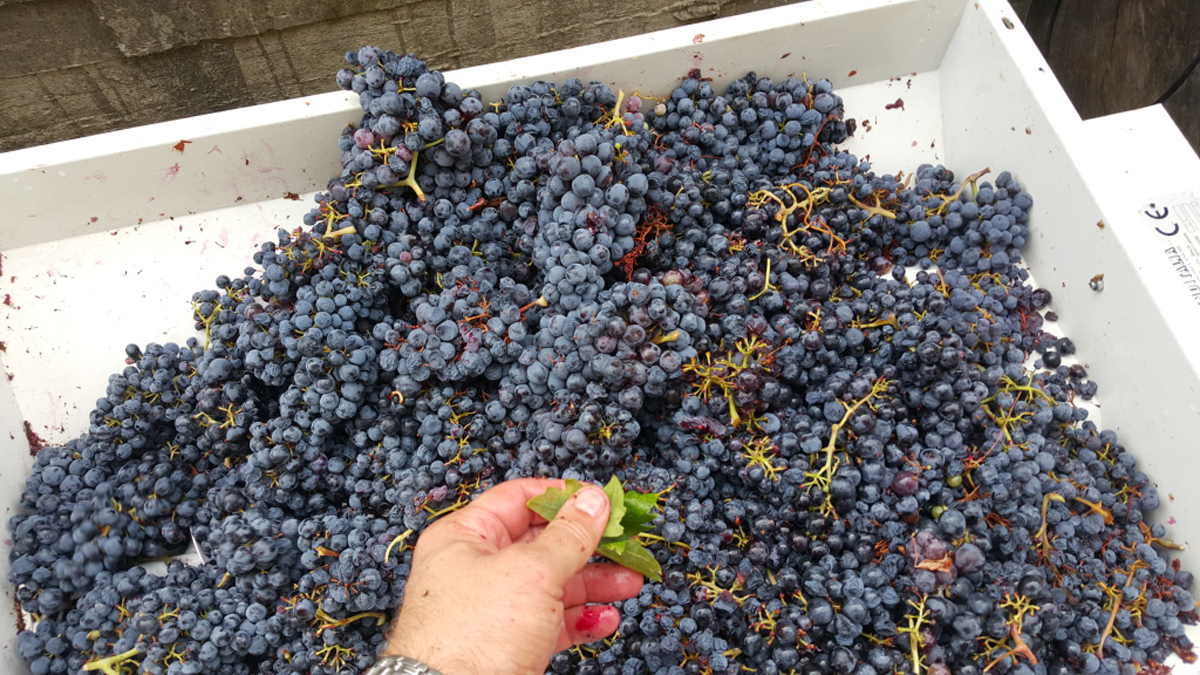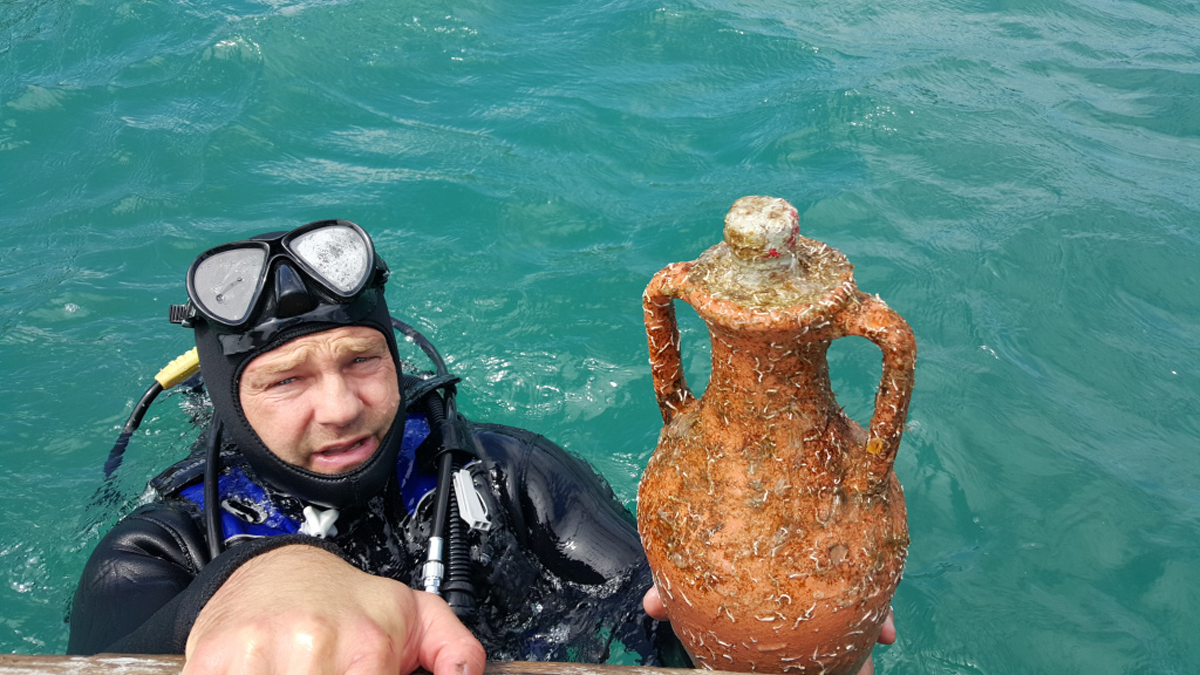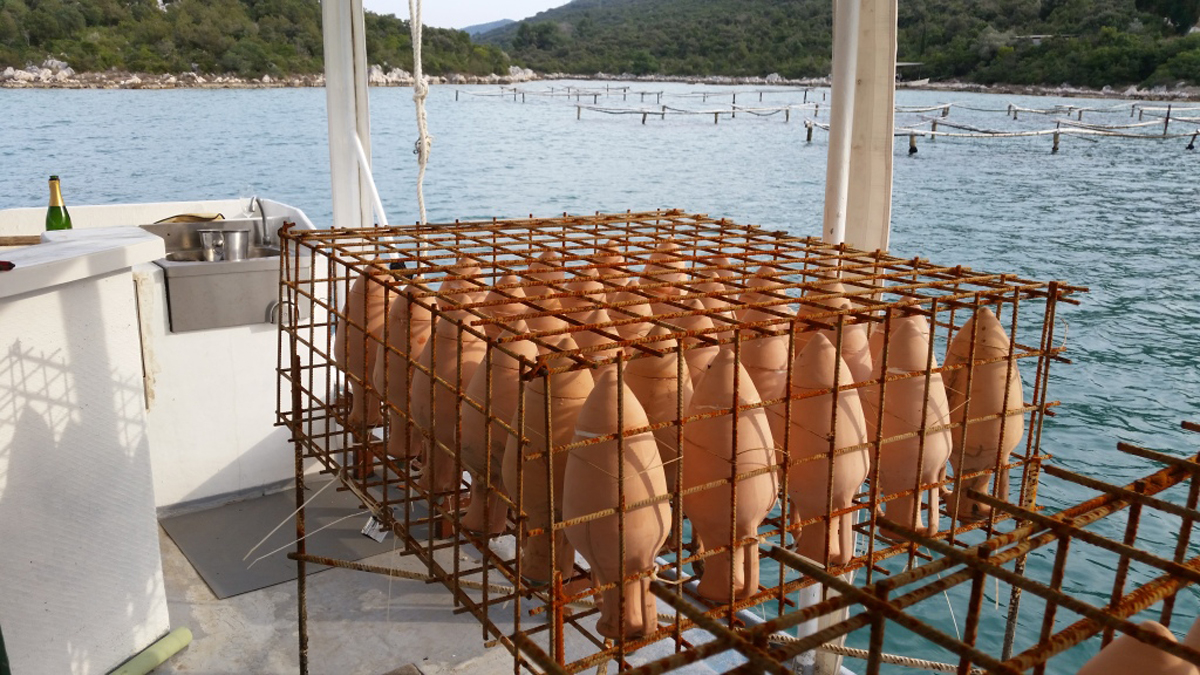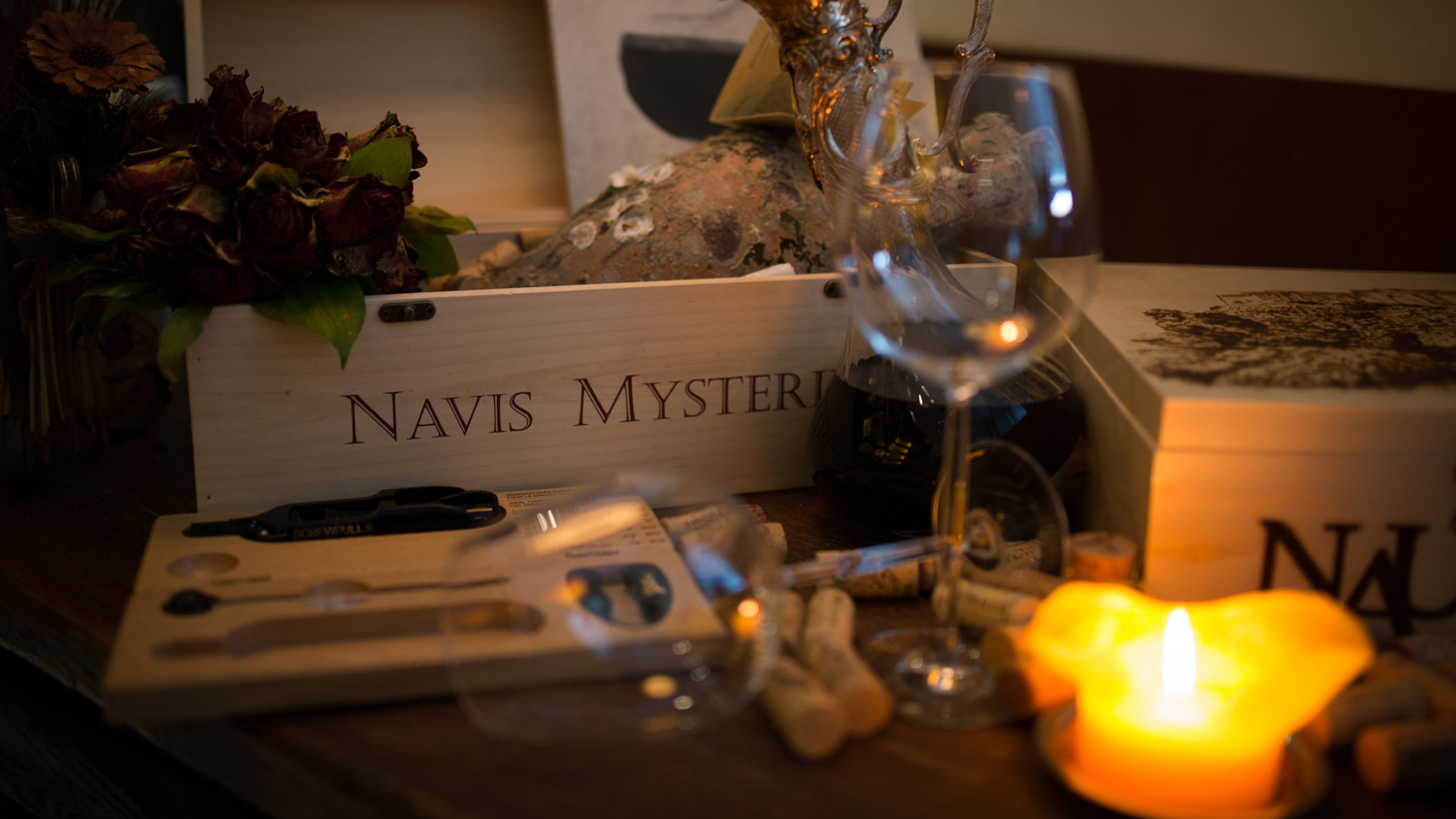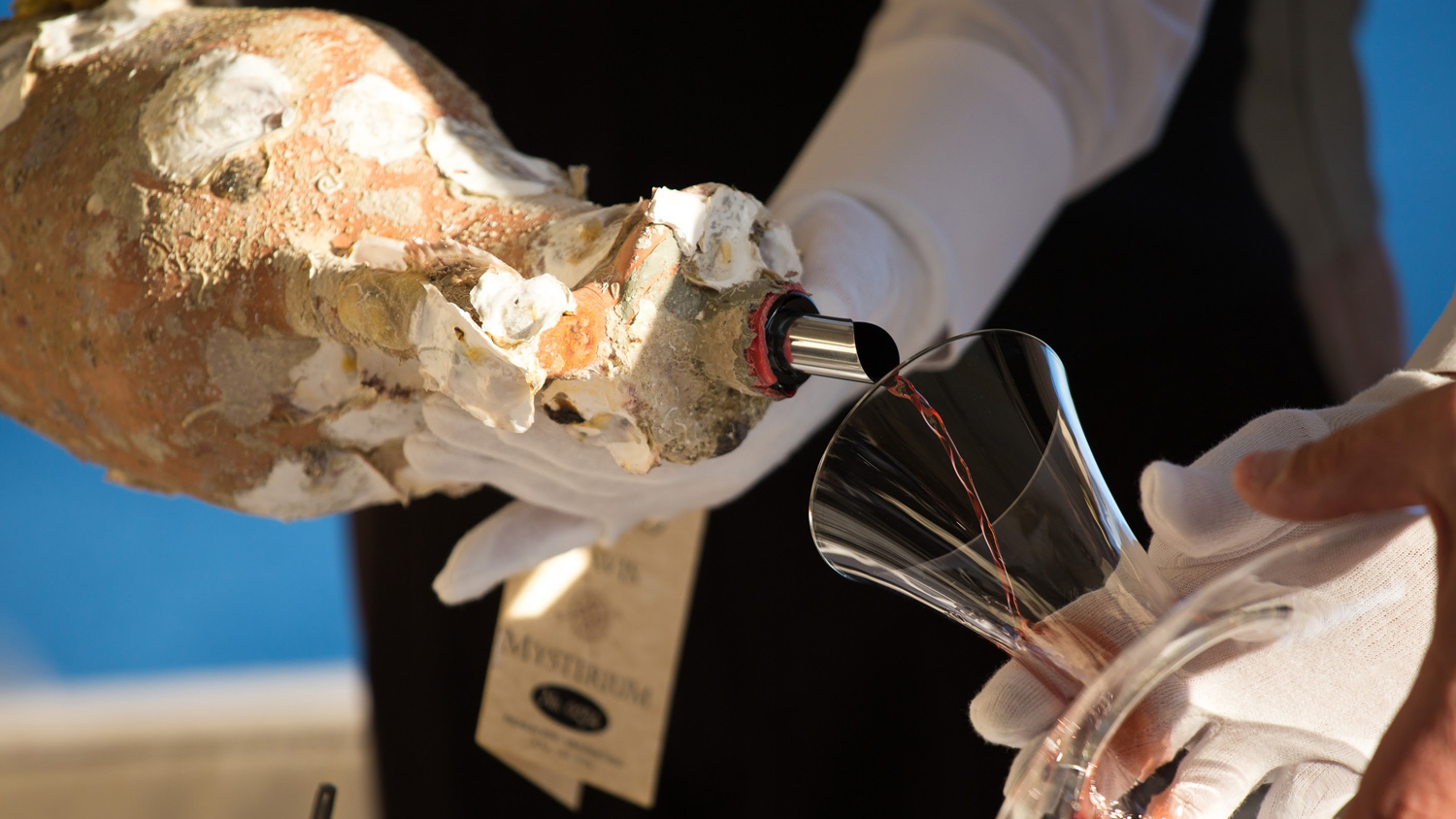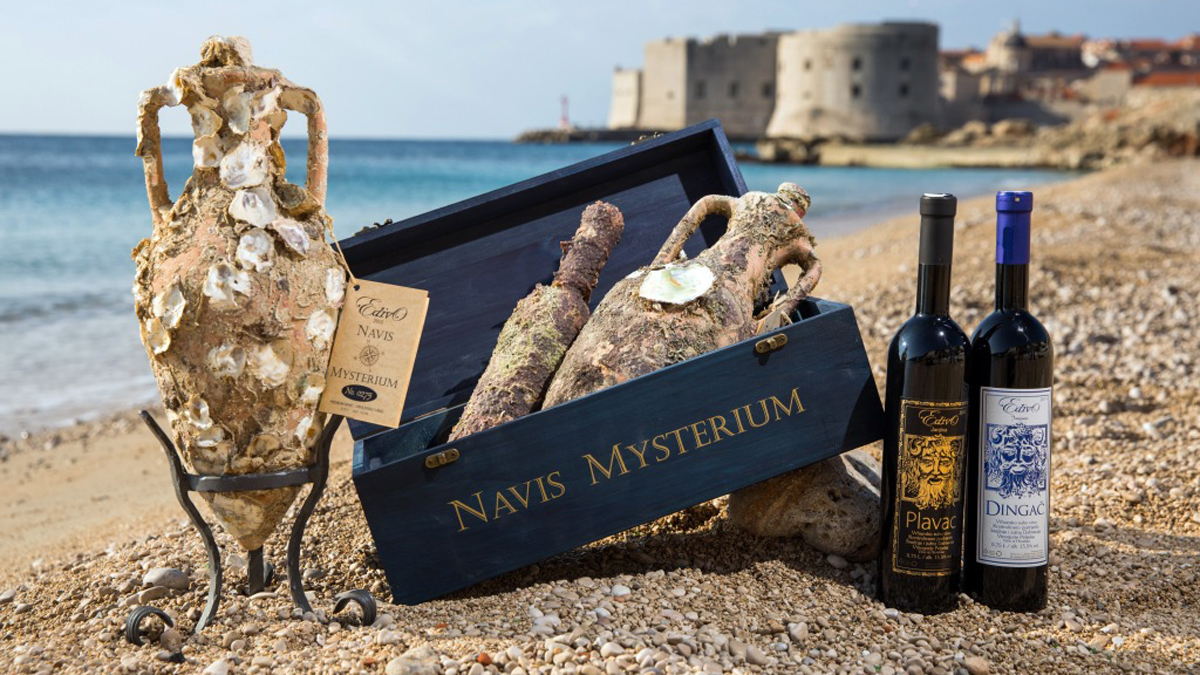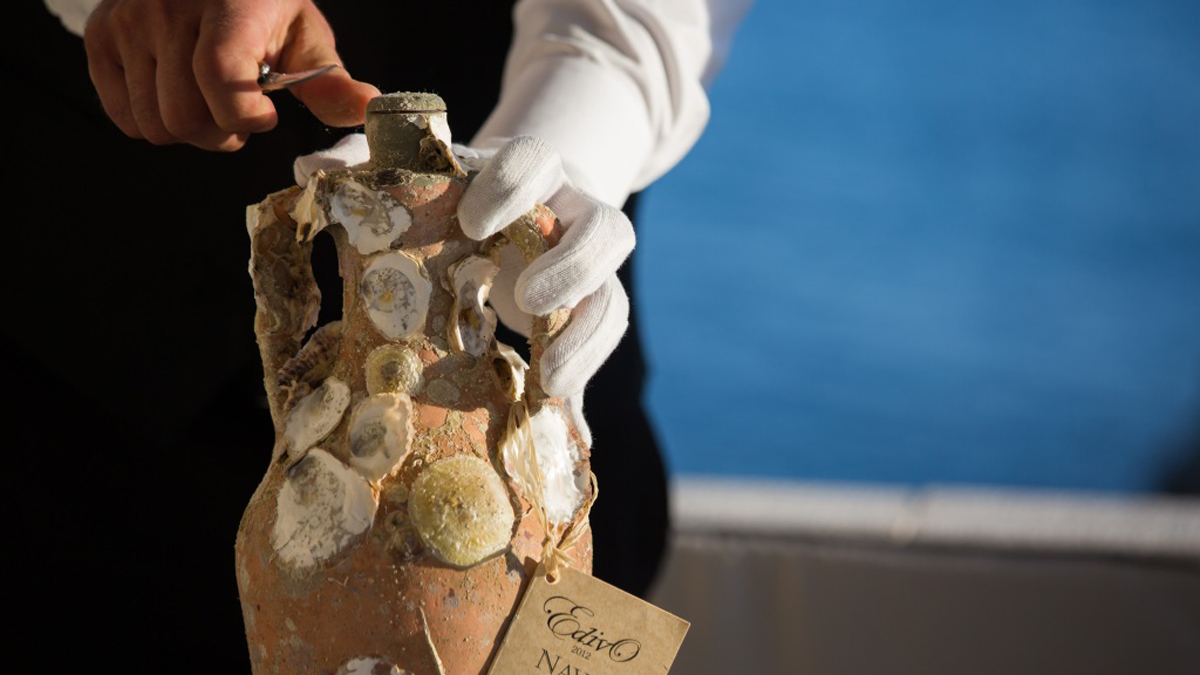For fans of both vino and scuba diving, it’s time to update the bucket list. In a seemingly bizarre move that seems to fulfill a request that no one made, Croatia has opened its first underwater winery. Given the country’s love of imbibing (it’s among the world’s top five countries for per capita wine consumption) and its stunning location on the Adriatic Sea, it’s actually surprising no one thought to do it before.
Edivo Vina on the Pelješac Peninsula is located at the bottom of Mali Ston Bay and requires guided assistance from professional divemasters to access. Owners Edi Bajurin and Ivo and Anto Šegović note their process starts on dry land where the wine is aged for three months. It’s then transferred to purpose-built clay jugs (with a narrow neck and two handles) called amphorae which impart a unique pinewood aroma into the wine. The terracotta jugs are then corked and encased in a dual layer of thick, impermeable rubber to prevent leakage. The last step involves submerging the amphorae 25 meters down aboard a sunken boat where they’re stored for up to two years in locked cages. Once the process is complete, the amphorae emerge with a beautiful, natural coating of shells, coral, and sea flora.
While it may seem like a novelty, there is some scientific rationale behind the process. Edivo’s underwater “cellar” maintains a constant year-round temperature of 15-17 celsius — an ideal environment for the maturation process. Surprisingly, Edivo is not the first to see the value in their underwater endeavor. Indeed, the Greeks are believed to have pioneered the process. Charleston’s Mira Winery offers Aquaoir that uses a similar aging methodology. The company notes that numerous historical shipwrecks have been salvaged with sealed wine bottles aboard that had been submerged for centuries. “The quality of the wine found in these and many other ‘discoveries’ suggest the wine was actually enhanced by the underwater elements.”
Mira took their process a step further to scientifically compare their wine creation and maturation processes on both land and sea. Their ocean aging “laboratory” has and continues to examine a wide range of varietals including Prosecco, Champagne, and their own red wines. So far, they’ve found that underwater aging produces a more consistent, better quality product.
